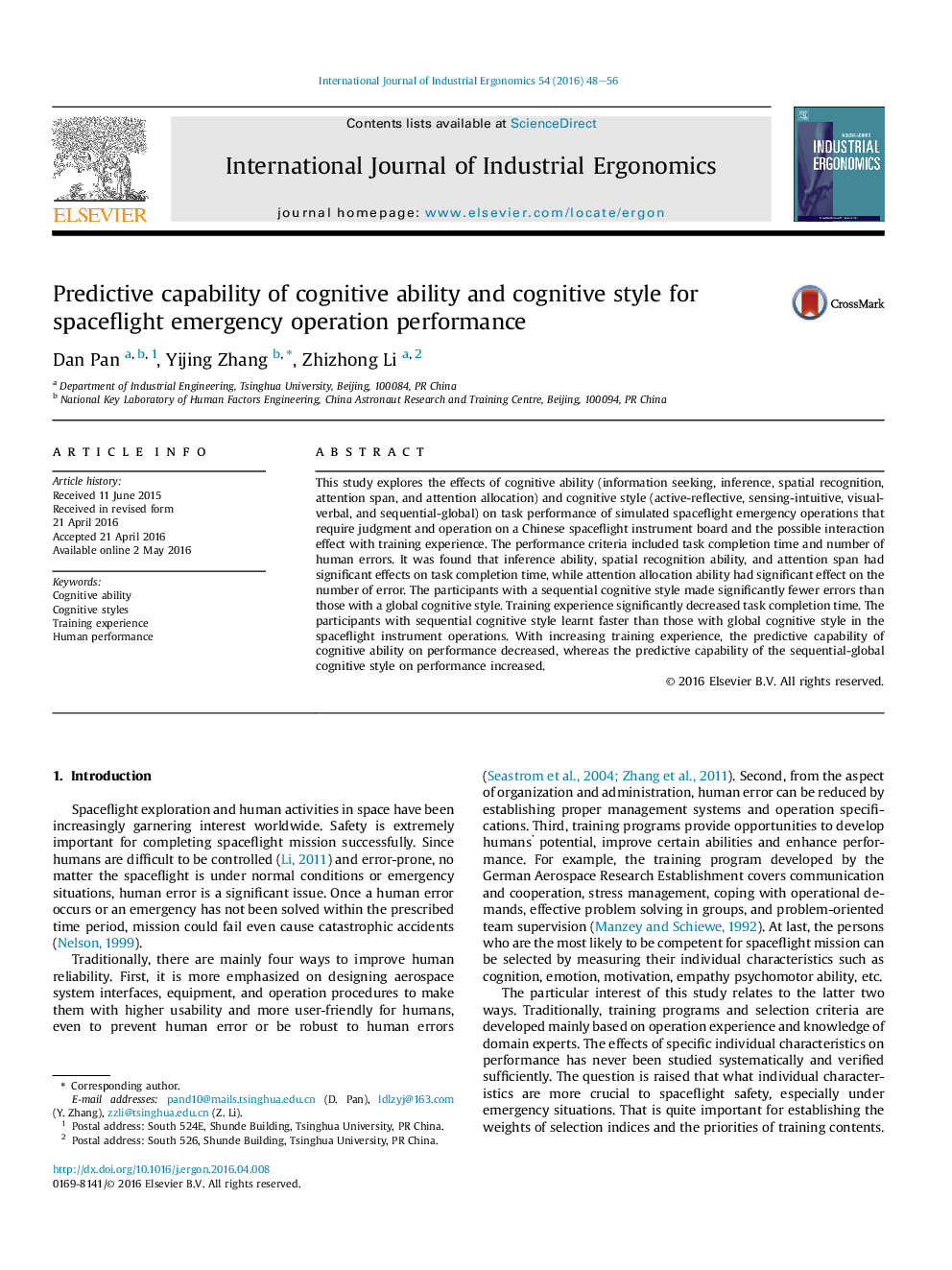| Article ID | Journal | Published Year | Pages | File Type |
|---|---|---|---|---|
| 1095781 | International Journal of Industrial Ergonomics | 2016 | 9 Pages |
•Inference ability, spatial recognition ability, and attention span had significant effects on task completion time.•Attention allocation ability had significant effects on human error.•Sequential-Global cognitive style had significant effect on human error.•There was significant interaction between training and cognitive ability/style.
This study explores the effects of cognitive ability (information seeking, inference, spatial recognition, attention span, and attention allocation) and cognitive style (active-reflective, sensing-intuitive, visual-verbal, and sequential-global) on task performance of simulated spaceflight emergency operations that require judgment and operation on a Chinese spaceflight instrument board and the possible interaction effect with training experience. The performance criteria included task completion time and number of human errors. It was found that inference ability, spatial recognition ability, and attention span had significant effects on task completion time, while attention allocation ability had significant effect on the number of error. The participants with a sequential cognitive style made significantly fewer errors than those with a global cognitive style. Training experience significantly decreased task completion time. The participants with sequential cognitive style learnt faster than those with global cognitive style in the spaceflight instrument operations. With increasing training experience, the predictive capability of cognitive ability on performance decreased, whereas the predictive capability of the sequential-global cognitive style on performance increased.
